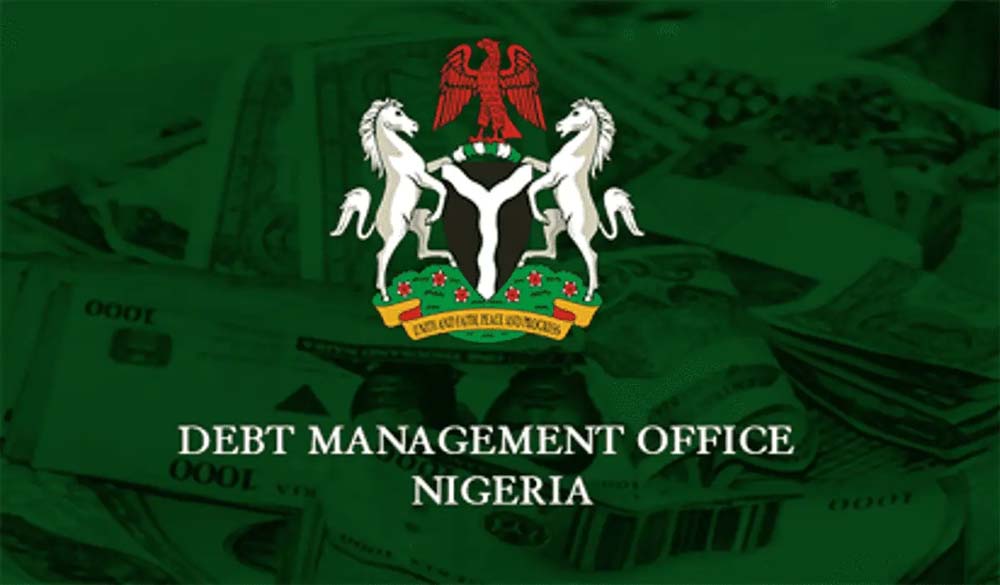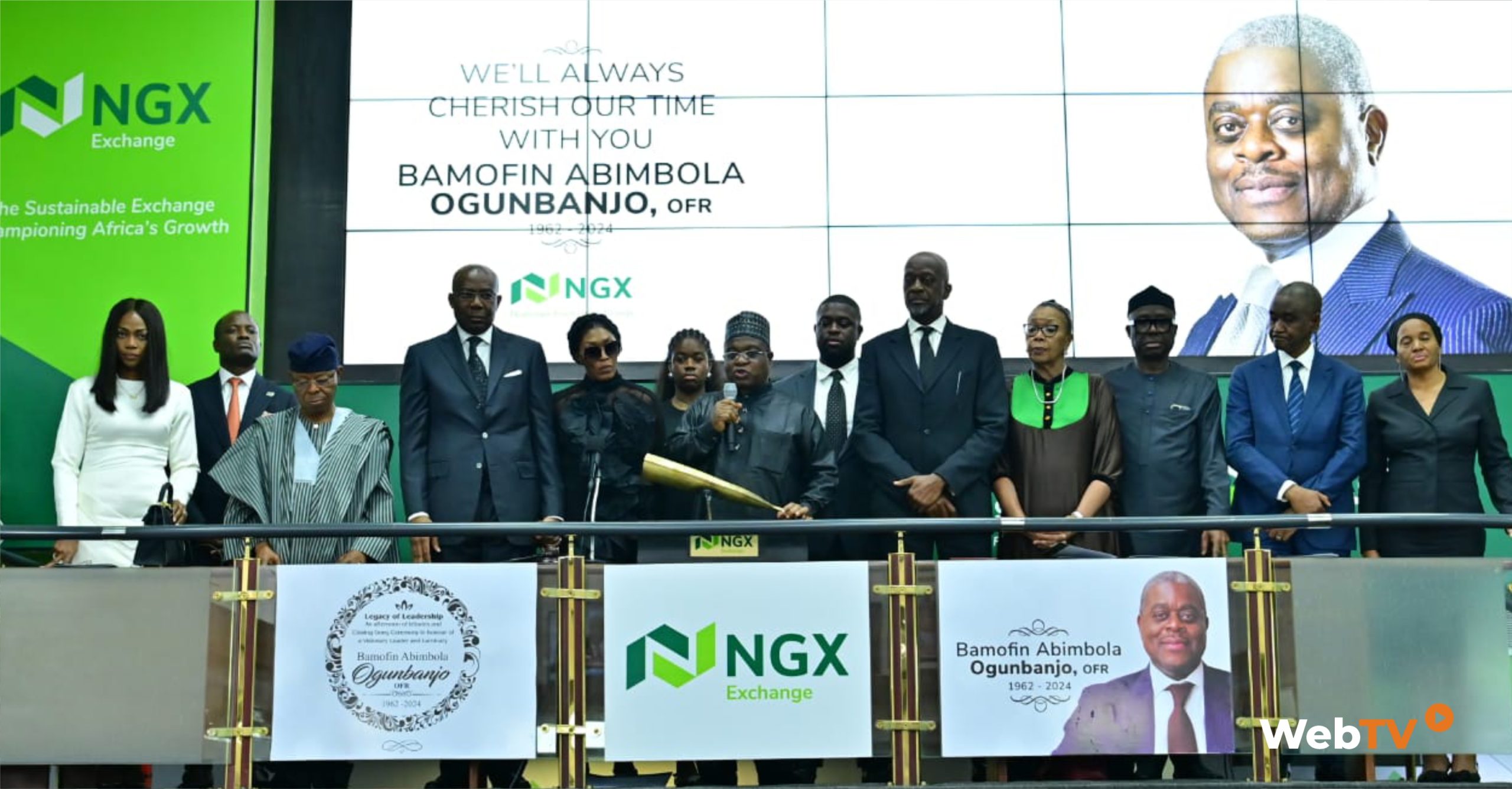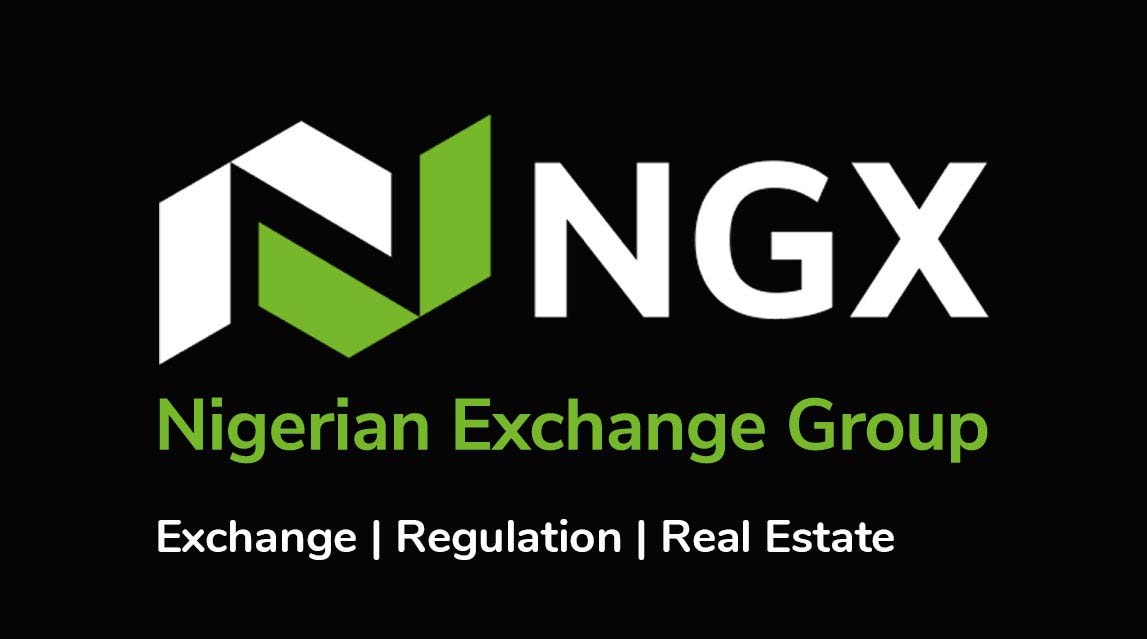Business
Why NGX, Stakeholders Are Focused On Reducing Settlement Cycle

Due to the current reforms and competition among exchanges in global financial markets, Nigerian Exchange Limited (NGX) has revealed that it is working assiduously with the Central Securities Clearing System (CSCS) Plc and other stakeholders to reduce the settlement cycle from T+3 to T+1 over the next few years.
This was even as the Exchange said it will continue to seek and explore the use of advanced technological tools such as Straight Through Processing (STP) of equity transactions to enhance transparency in the Nigerian capital market (NCM).
The Divisional Head, Capital Markets, NGX, Jude Chiemeka stated this during the virtual NGX Retail Workshop themed; STP of Equity Transactions, organized in collaboration with Central Securities Clearing System (CSCS) Plc and United Capital in Lagos.
Chiemeka, while commending CSCS and United Capital, explained that the equities market is constantly evolving and it is imperative that the Exchange keep up with the latest trends and technologies to ensure that as a platform provider, it provide investors the best possible service.
According to him, STP is a mechanism that automates the end-to-end processing of transactions of financial instruments and also provides a means of electronically capturing and processing transactions from the point of first deal to final settlement.
Citing examples of how well STP worked in other climes, Chiemeka said that STP which was launched in India last year with a settlement cycle of 15 days, now has a cycle of 2 days, thus putting the India capital market in the elite group of advanced markets of the world while adding that the NGX is working assiduously with the CSCS and other stakeholders to reduce the settlement cycle from T+3 to T+1 over the next few years.
He said, “However, this initiative can be achieved with the use of technology such as STP and adopting the STP will help in increase market transparency, avoid costly duplication of work and manual intervention, reduction in risks and errors, faster data capturing, processing and reporting generation, increase the overall market efficiencies and volumes of trade make the market cost effective and provide effective regulation by systematic audit trail.
In view of this, NGX will continue to explore the use of advanced technological tools such as STPs to ensure that the investing public conduct their transactions in a more efficient and seamless manner”.
Giving insights on the benefits of STP, the Regional Head, Business Technology and Digital Innovation at CSCS, Tobe Nnadozie, said that the mechanism will create seamless settlement for investors and help to get real time enterprise Know-Your-Customer (KYC) integration. Nnadozie added that even though the STP might be expensive now, it will become cheaper in the long run.
For her part, Martha Ehizele, Digital Channels and Partnerships lead at United Capital Securities, the STP mechanism will help in bringing youths (especially those who are not investing) to the capital market.
The Head, Investor Service Product Management, Transactional Products and Services at Standard Bank Group, Hari Chaitanya, said the STP is quick and allows investors to have easier access to wide range of products, mitigate risks and reduces cost of operating in the market.
Business
FG Reiterates Commitment To Utilise Gas For Economic Growth, Prosperity

. . . Tinubu Lauds NNPC Ltd, Partners Over Three Commissioned Gas Projects
In line with its renewed hope agenda, the Federal Government has reiterated determination to utilize Nigeria’s abundant gas resources towards revamping her industrial growth and kick-starting economic prosperity.
Biztellers reports that President Bola Ahmed Tinubu made the assertion while commissioning three critical gas infrastructure projects executed by the NNPC Limited and its partners in Ohaji-Egbema, in Imo State and Kwale, in Delta States, on Wednesday.
The three projects commissioned include the expansion of the AHL Gas Processing Plant, the ANOH Gas Processing Plant and the 23.3km ANOH to Obiafu-Obrikom-Oben (OB3) Custody Transfer Metering Station Gas Pipeline Projects.
He said, “It is pleasing that approximately, 500MMscf of gas in aggregate would be supplied to the domestic market from these two Gas Processing Plants, which represents over 25% incremental growth in gas supply.
“In practical terms, this translates into more gas to the Power Sector, Gas-Based Industries, and other critical segments of the economy.”
The President pointed out that from the onset, his administration was clear of its intention to leverage on the virtually unlimited capacity of gas to deepen domestic gas utilization, increase national power generation capacity, revitalize industries, and create multiple job opportunities for economic growth.
He said aside the Presidential Compressed Natural Gas (CNG) Initiative which is aimed at moving Nigerians away from petrol and diesel as vehicular combustion fuel, significant progress has also been recorded in incentivizing gas development through Presidential Executive Orders.
While congratulating the projects partners (NNPC Limited, Sterling Oil Exploration & Energy Production Company Limited (SEEPCO) and Seplat Energy for the successful implementation of the three projects, Tinubu particularly charged the NNPC Limited to, as the national energy company of choice, sustain its relentless efforts and record more successes in the energy sector for the benefit of all Nigerians.
President Tinubu described the commissioning as a highly significant milestone for Nigeria as it demonstrates his administration’s efforts to accelerate the development of critical gas infrastructure geared at enhancing the supply of energy to boost industrial growth and create employment opportunities.
He said the projects were fully in line with the Federal Government’s Decade of Gas initiative, and his administration’s quest to grow value from the Nation’s abundant gas assets while concurrently eliminating gas flaring and accelerating industrialization.
“I wish to assure the citizenry that these are just the beginning, as the federal government is stepping up its coordination of other landmark projects and initiatives that will ensure the earliest realization of gas fueled prosperity in our country.
“Consequently, I wish to assure investors in the energy space that this is an investment enabling government and we will not relent in facilitating the ease of doing business,” the President noted.
Earlier in his address, the Minister of State for Petroleum Resources (Gas) Rt. Hon. Ekperikpe Ekpo highlighted the efforts of his ministry to continue to champion the utilisation of gas as a transition fuel as Nigeria moves towards achieving clean energy efficiency and security by 2060.
Ekpo commended the President for his leadership and support towards the success of the three projects.
In his remarks, the GCEO NNPC, Mele Kyari described the commissioning as a demonstration of Mr. President’s commitment and support to grow the domestic utilization of natural gas for power generation, as feedstock for gas-based industries and overall rapid industrialization of Nigeria on the back of the enormous gas resources in the country.
Kyari assured that as part of its mandate, NNPC Ltd remains committed to maintaining energy security by executing more strategic gas projects for the benefit of Nigeria.
Business
FG Lists N4.214bn April Savings Bonds On NGX

The Nigerian Government has listed her April 2024 Savings Bonds worth N4.214 billion on the Nigerian Exchange Limited (NGX) platform.
This was disclosed in the market bulletin signed by the Head, Issuers Regulation Department of NGX, Godstime Iwenekhai.
According to the bulletin, “Trading License Holders are hereby notified that the April 2024 Issue of the Federal Government of Nigeria (FGN) Savings Bonds was listed on Nigerian Exchange Limited (NGX) on May 13, 2024.”
Details of the Bonds include FGS April 2026, 1.228 million units valued at N1.228 billion at a coupon rate of 17.046%, while FGS April 2027, 2.986 million units amounted to N2.986 billion at a coupon rate of 18.046%.
The bonds are backed by the full faith and credit of the FGN and charged upon the general assets of Nigeria, according to the debt office.
FGN Savings Bond is issued monthly in tenors of two and three years with quarterly payment of coupons (interest) at a rate predetermined and published by the DMO every month.
The retail savings bond product was introduced by the DMO on behalf of the FGN in 2017 to democratise its activities in the bond market by making it easily accessible to Nigerians to ensure continuous development of the domestic market and bridge infrastructure deficit which has been a constraint to economic growth.
Business
JUST IN: Nigeria’s Inflation Soars To 33.69%
Nigeria’s inflation rate surged to 33.69% in April 2024, up from 33.20% in March, according to the latest data from the National Bureau of Statistics (NBS).
The Consumer Price Index (CPI) report, released Wednesday, shows a 0.49 percentage point rise within a month.
Year-on-year, the inflation rate has surged by 11.47 percentage points, compared to 22.22% in April 2023, highlighting the ongoing economic challenges and rising costs for consumers.
The report reads “In April 2024, the headline inflation rate increased to 33.69% relative to the March 2024 head line inflation rate which was 33.20%.
“On a year-on-year basis, the headline inflation rate was 11.47% points higher compared to the rate recorded in April 2023, which was 22.22%.
This shows that the headline inflation rate (year-on-year basis) increased in the month of April 2024 when compared to the same month in the preceding year (i.e., April 2023).
“Furthermore, on a month-on-month basis, the headline inflation rate in April 2024 was 2.29%, which was 0.73% lower than the rate recorded in March 2024 (3.02%).
“This means that in the month of April 2024, the rate of increase in the average price level is less than the rate of in crease in the average price level in March 2024.”
Prices of food and basic commodities have surged dramatically in recent weeks, as Nigerians grapple with a soaring cost of living and one of the nation’s most severe economic crises.
The crisis has been intensified by the government’s removal of petrol subsidies and the unification of forex windows.
The naira, which had appreciated against the dollar in April, has since plummeted from about N1,100/$1 to roughly N1,500/$1.
Following the latest inflation report from the National Bureau of Statistics (NBS), the Monetary Policy Committee (MPC) of the Central Bank of Nigeria (CBN) is anticipated to review the country’s interest rate, currently set at 24.75%.













